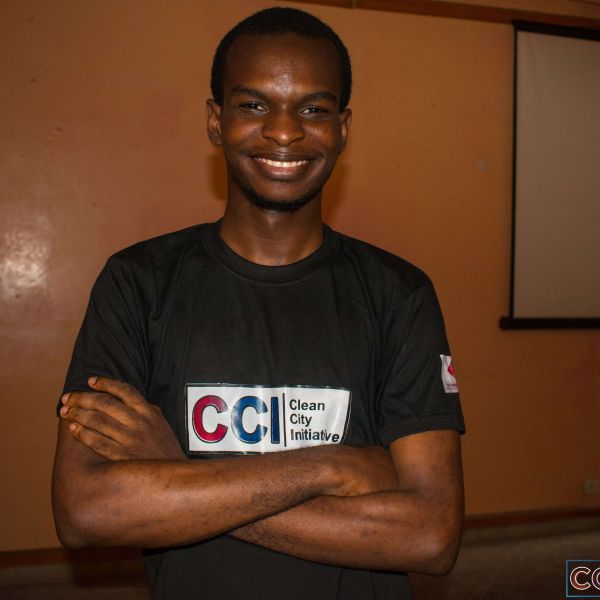Image

Ibadan, Nigeria
Age: 22
Oluwafolajimi is using technology, education, and recycling to eradicate plastic pollution and the threat of climate change in Ibadan, Nigeria.
How are you using education to build more sustainable and equitable communities?
As co-founder of the Clean City Initiative, I coordinate monthly environmental sanitation outreach projects where we share knowledge about sustainable waste management practices and recycling with indigenous rural communities in Ibadan. We discuss the dangers of indiscriminate plastic waste disposal and its association with flash flooding, pollution, and climate change. By comparing surveys taken before and after our activities in Yemetu and Beere, 96% of community members acknowledged an increase in their knowledge on environmental sanitation while 92% stated that prior to our arrival, they had not heard of the concept of climate change. Learn more about our outreach projects on our YouTube channel.
Furthermore, we operate an eco-volunteers program where we recruit and train young people as certified environmental activists, equipping them with knowledge and skills around plastic waste recycling and climate change mitigation and adaptation.

Ibadan is the third largest city in Nigeria with over 3,000,000 people and is widely acclaimed as the dirtiest city in the country. Of the several sources of waste the city battles, plastic waste remains the most problematic with an estimated 5,000 metric tons of plastic produced daily, and less than 7% of this is recycled. The remaining 93% (approximately 140,000 tons/month) ends up in one of two places: landfills where they decrease the aesthetic value of the landscape, and drainage channels where they cause obstructions and trigger severe floods that take lives and destroy properties. In March 2018, I co-founded the Clean City Initiative with a vision to eliminate the menace of plastic pollution and flooding in Ibadan through recycling that creates jobs for the people of Ibadan and beyond. We have partnered with five communities (Beere, Oje, Mokola, Dugbe, and Yemetu), bringing knowledge of environmental sanitation to more than 12,300 people, collecting and recycling more than 700kg of plastic waste. Learn more here.
What advice would you give to the next generation of leaders?
While the world battles the new foe called COVID-19, climate change and environmental issues have been pushed to the sidelines. However, these issues themselves have inherent consequences of pandemic proportions if left unattended. While governments may not recognize the need to prioritize these issues, as young people who may have to live with the consequences our whole lives, we ought to take up the responsibility of addressing them in any way we can. While this may seem like a heavy lift, and frankly one that we shouldn’t have to bear, the reality of our situation says otherwise. If anyone can rise to the occasion, young people certainly can.
Have a vision, start from wherever you are, and grow outwards. Act locally, but think globally. Be open to collaborations and seek support. Let’s join hands all over the world to make our climate, planet, and environment sustainable.
If you could have one superpower, what would it be?
Telekinesis: It would be nice to read people’s minds and interact with things without actually touching them. Maybe that way we could get rid of more CO2 in our atmosphere faster? Hah!
Who do you look up to as an inspiration?
As a young Black leader, Former US President Barack Obama is an inspiration to me as the first African American president of the United States.